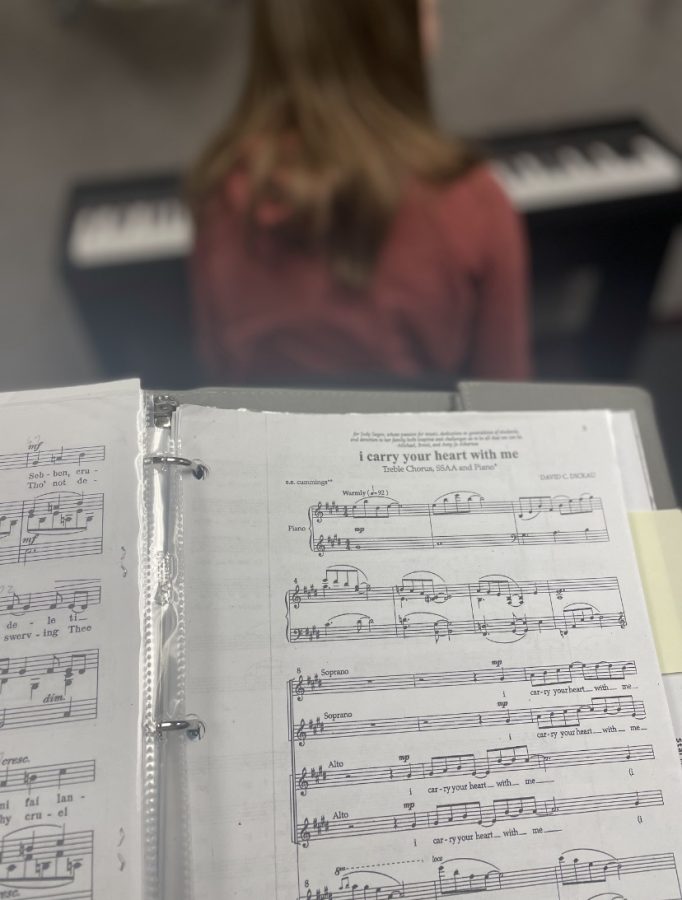Choir competition conflict
Choir can either relieve stress or cause it, the effects vary due to the pressure that is formed from various activities.
Determination. At the end of the day, students need to remember that they are capable of doing great things, it is the way they push themselves that will help them succeed. “I think we have to learn that it’s okay to push ourselves,” Saylor said.
March 9, 2023
Choir is like a team sport. It takes hard work and determination from every individual person in order to get the wanted results. As an individual activity, choir can take dedication and time every day in order to keep up with the goal to succeed. If a student goes into an opportunity, like contest, without putting effort into the music, the song could be derailed and the whole group would suffer the consequences.
In choir, contest is a large amount of work and adds stress to choir kids’ daily lives. From the beginning of the second semester to the end of March. With other schools, contest is an opportunity for students to branch out and sing a solo, or a piece with other students, along with their required piece of music. Contest helps students grow and learn to cooperate better with their peers.
“I think National and International Research on singing together has shown that it’s pretty massive as far as what it does for calming you down, anxiety levels, and breathing,” BHS Choir teacher Brian Saylor said.
Contest season may be a great way for singers to connect with their peers, but it can begin to create stress as students are competing for a good score. Starring at contest is the main goal, to be able to advance to state and perform there as well.
“It’s really interesting because it is competitive, but we’re really competing against ourselves,” Saylor said. “ It’s much more like an individualized sport where you want to get a better time and score.”
Various work ethics and the amount of effort put into a song daily can decrease the positivity of the ensemble because of conflict. Students are encouraged to work with others and promote a positive environment, and they try to support their peers through the stress of learning a new piece of music, memorizing it, and performing it.
“I think this lack of positivity depends on each individual ensemble,” Saylor said. “Because we’re asking students to do small group work together, some people handle that really well and some people struggle.”
Students often fight with themselves more than they fight with others when it comes to this type of event. They do not always feel like they are meeting their own expectations and battle with themselves to improve.
“I think it’s human nature to want to excel, we live in a society where we value production and one of our values is doing well,” Saylor said. “I think that’s where the competitiveness comes from.”
The process of putting together a song takes time and effort. It is not always as simple as singing the song together. The puzzle pieces of the song need to fit together in order for it to be ready to perform.
“It is a longitudinal process,” Saylor said. “It takes a long time to learn something and get it performance ready.”
Students do not always have the confidence to sing a piece of music, even if they know that they can. Confidence plays a big role in whether or not students branch out and take advantage of the opportunities that choir has to offer.
“I think that the reality is we all have to learn how to be the best version of ourselves possible,” Saylor said.


